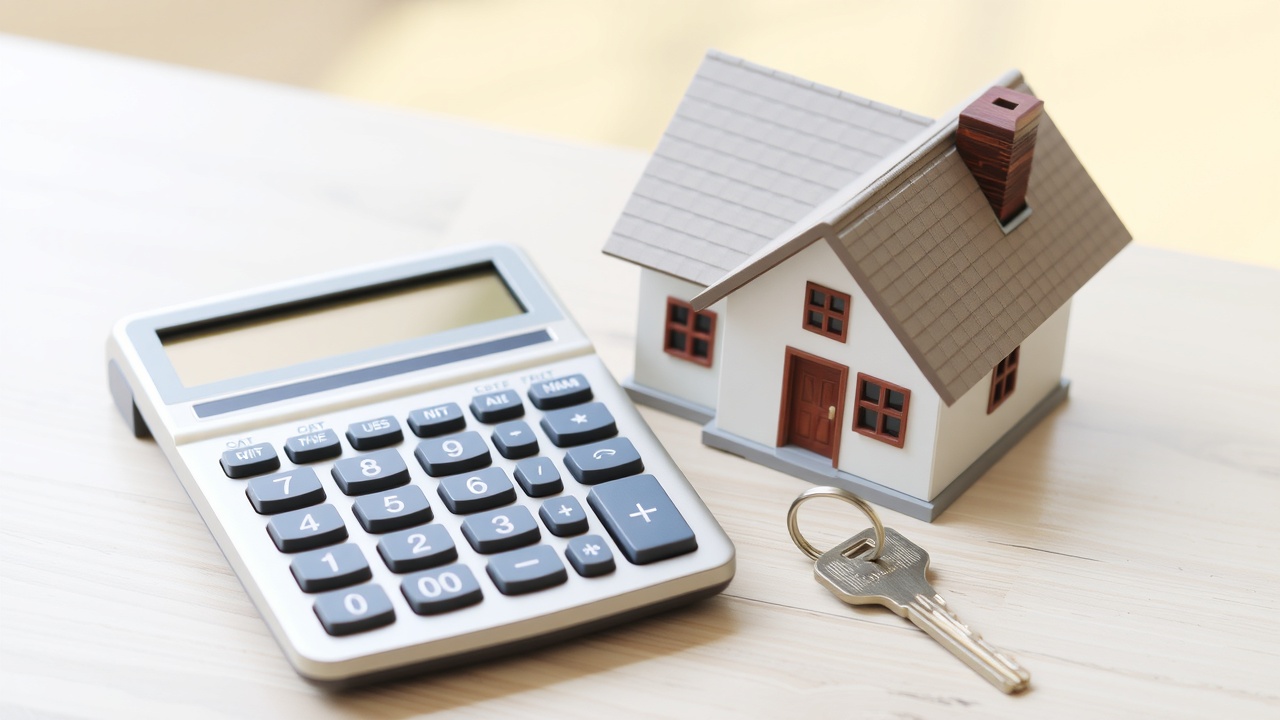
Due to widespread speculation that the Bank of England will continue to lower interest rates in May and throughout 2025, homeowners who are remortgaging this year will have to decide between the security of a fixed mortgage and the opportunity to take advantage of future rate reductions on a variable rate agreement
Some of the lowest mortgage rates ever offered in the UK will be gone as millions of homeowners finish their fixed rate mortgages this year.
Those who locked into a fixed rate in 2020 or earlier and had at least 40% equity are probably going to be paying off an interest rate of about 2% and incurring significantly higher borrowing costs.
Financial data firm Moneyfacts reports that average five-year fixed rates are currently 5.11 percent, while average two-year fixed rates are currently 5.20 percent.
However, there is some positive news. With the first of what is anticipated to be multiple interest rate reductions in 2025, the Bank of England's rate-setting committee lowered the base rate from 4point 75 percent to 4point 5 percent in February.
Thursday, May 8, 2025, will mark the announcement of the Bank of England's next base rate decision. Interest rate cuts by the Bank by an additional 0 to 25 percentage points are almost a given in the financial markets.
In light of this, UK Finance estimates that 11.8 million homeowners will have to remortgage this year.
Many people are perplexed... 37 percent of 2,000 UK adults surveyed in April 2025 by the real estate advice website Homeowners Alliance stated they anticipated an increase in mortgage rates over the course of the next 12 months.
This expectation is higher than the expectations of those who think rates will remain the same (25 percent) or decline (16 percent). In contrast, 22% of respondents say they just don't know, which reflects a generalized sense of economic uncertainty and anxiety.
Paula Higgins, CEO of the HomeOwners Alliance, states: "Consumer confidence is negatively impacted by uncertainty about the state of the economy and future prospects.
Millions are caught in a limbo as the Bank of England considers its options, not knowing whether to fix their mortgage right away or wait for interest rates to drop.
The factors to take into account when deciding whether to choose a variable mortgage rate or fix your next mortgage rate are examined in this guide.
A fixed-rate mortgage: what is it?
For the duration of the mortgage agreement, the interest rate on a fixed rate mortgage is assured to remain constant. You will be certain that your mortgage rate will remain fixed at 5 percent for the next two years if you select a two-year fixed rate.
A number of variables, including your credit history and the amount of equity you have in your house, affect the rate you are given.
What is a mortgage with a variable rate?
Your rate may change over the course of your mortgage agreement if you select a variable rate mortgage, contingent on the type of variable mortgage you have selected.
If a borrower chooses a two-year variable rate mortgage, for instance, the interest rate may begin at 5 percent, drop to 4 percent after six months, and then increase to 5 percent at the end of the two years.
How does a Standard Variable Rate mortgage differ from a tracker or a discount mortgage?
Three different kinds of variable rate mortgages exist.
Tracker mortgage trackers monitor changes in the base rate, whether they are upward or downward, and are directly tied to the Bank of England.
Your rate would be 4 points 5 percent plus 0 points 50 percent, or 5 percent, if your deal tracks the Bank of England Base Rate (BBR) by +0 points 50 percent.
Discount mortgage The standard variable rate (SVR) that all borrowers pay when they are not in a mortgage transaction is reduced by a discount.
You may be given a rate of 5% after receiving a 2 percent reduction from the lender's 7 percent SVR. The rate is subject to change if the lender modifies their SVR.
Standard Variable Rate (SVR) mortgage Lenders will receive SVR from borrowers who are not bound by a mortgage agreement.
It is expensive to stay on your lender's SVR because the average SVR is currently between 7 and 60 percent, according to Moneyfacts.
Advantages and disadvantages of fixed versus variable rate mortgages.
Budgeting for household finances is made easier with fixed rate mortgages, which ensure stability over your monthly mortgage payments.
There will be a penalty, though, if you have to remortgage or pay back your loan before the end of your fixed rate. Additionally, any drops in interest rates will be lost to you.
Variable rate borrowers will benefit from interest rate reductions and have a higher chance of being able to repay their loan early without incurring penalties. Budgeting can be challenging, though, because your monthly payment will increase if rates do.
Will the rates for fixed mortgages increase or decrease?
Fixed rates have decreased in early 2025, and if the Bank of England lowers the base rate this year as economists predict, the cost of borrowing will decrease more gradually.
Moneyfactscompare . co . uk spokesperson Caitlyn Eastell says: "With a few lenders now offering rates below 4 percent, the recent declines in fixed rate mortgages will be encouraging news for potential buyers and remortgage customers.
Even though longer-term mortgages have been less expensive since October 2022, the recent cuts could put an end to this inversion. The average two-year fixed mortgage is now only 0.09% behind its five-year counterpart.
"The Bank of England base rate is anticipated to be lowered on May 8th, which could lead to further rate reductions and benefit mortgage borrowers.
According to Adrian Anderson, managing director and mortgage adviser at brokerage Anderson Harris, swap ratesthe rates at which financial institutions lend to one anotherhave a major impact on fixed-rate mortgages.
According to him, "they rise and fall based on a number of factors, such as the Bank of England's statements, market expectations regarding governmental policies, and global market tensions."
"Global economic tensions and a rise in government borrowing driven up swap rates in January, which in turn caused mortgage fixed rates to rise. Swap rates and mortgage fixed rates decreased in early February as a result of the markets' subsequent calm.
Additionally, some lenders have been prompted to make additional rate cuts after the Bank of England decided to lower the base rate from 4 percent to 4 percent.
"It is good news that the base rate was recently lowered because it should give lenders the confidence to lower fixed rates," Anderson continues.
However, since many lenders' current fixed rate offerings already factored in the base rate cut, large drops are unlikely.
Do I need to make my mortgage better?
Depending on your situation, that is.
You might want to consider a fixed rate if you want to budget with the assurance that you know what your rate will be over a specific time period.
However, you will probably be hit with steep early repayment penalties if you plan to move or pay off your mortgage in full before your fixed rate expires. A penalty-free variable rate might be a better choice in this situation.
For what duration can a mortgage be fixed?
Lenders most frequently offer two- and five-year fixed rates, with a smaller range of three- and 10-year fixed deals available.
Recently, two lenders with longer-term mortgages entered the market. In contrast to Perenna, which offers a fixed rate for the duration of a homeowners mortgage, up to a maximum of 40 years, April Mortgages permits borrowers to fix their mortgage rate for up to five years.
Even though there are more options for longer-term fixed rates, five-year fixes are still the most common term; in November 2024, they made up 49% of all mortgages obtained, according to UK Finance.
Can you remortgage at both variable and fixed rates?
Remortgaging is possible, but there will likely be a penalty for those with fixed rates.
For instance, a homeowner who fixes their rate for five years may be required to pay a penalty equal to 5% of the mortgage balance in the first year of the mortgage and 1% in the fifth.
Middleton Finance's founder, Daniel Bailey, states: "Most lenders will charge an early repayment fee if you wish to remortgage while you are on a fixed deal, but it's always worth checking the terms of your deal.
For example, Virgin Money is providing a fix and switch strategy in which a five-year fixed rate agreement is accompanied by a two-year early repayment penalty.
Certain variable rate mortgages, like trackers, are typically penalty-free, allowing you to remortgage whenever you choose throughout the tracker's term.
Is paying the penalty and remortgaging ever a smart idea?
"Over time, savings could exceed the initial penalty if the new rate you're remortgaging on to is significantly lower," says Nick Jones, mortgage sales and marketing director for brokerage Access FS.
"But it all depends on the individual situation," he continues. "Talk to an expert about this before acting to comprehend the possible long-term savings.
The process of comparing mortgage offers.
Asking a mortgage broker to compare mortgage offers for you is the easiest and safest method.
Here are three tips for comparing deals, though, if you want to do it yourself.
First tip. .
To compare rates from various lenders in the same loan to value ratio (LTV) range, calculate your property's LTV by dividing your mortgage balance by the home's value.
Two tips.
"Don't be led just by the rate," Middleton advises. "Take into account all of the expenses, including any booking or arrangement fees related to a deal. The most economical offer might not be the one with the lowest rate. The range of arrangement fees is 0 to 1,499 dollars. Keep in mind to account for early repayment fees as well.
Third tip.
Examine the features that may be flexible for you. Jones advises looking for porting options and overpayment allowances if there's a chance you'll need to overpay or move. "Some lenders permit 10% annual overpayments without penalties.














Leave a comment on: Is it better to have a variable rate or a fixed mortgage?